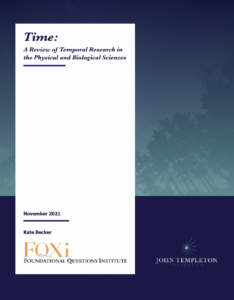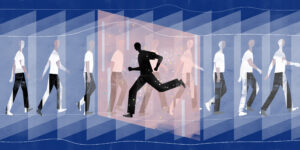Time
 What is time? It is the position of the hands on a clock. You can be on time, in time, out of time. Time is the thing that makes the past closed and the future open, distinguishes history from prediction, and establishes cause before effect. It is the gear that turns the future into the present and the present into the past. It flows, but not steadily: sometimes it passes by in a great rush, sometimes in drowsy drips, and sometimes it almost seems to freeze. It makes beginnings possible and endings inevitable.
What is time? It is the position of the hands on a clock. You can be on time, in time, out of time. Time is the thing that makes the past closed and the future open, distinguishes history from prediction, and establishes cause before effect. It is the gear that turns the future into the present and the present into the past. It flows, but not steadily: sometimes it passes by in a great rush, sometimes in drowsy drips, and sometimes it almost seems to freeze. It makes beginnings possible and endings inevitable.
Natural, Subjective, and Clock Time
This research review, produced by the Foundational Questions Institute (FQXi) and written by Kate Becker, delves deep into an examination of three flavors of time: “natural time”, which refers to a true and immutable version of time that exists independent of our perception; “subjective time”, which refers to the human experience of time; and “clock time”, which refers simply to the measuring instruments we use to quantify time. Physicists are now tackling some of our deepest questions about natural time head-on: Where does it come from? Is the flow of time real, or an illusion? Can time be reversed?
Challenging our Assumptions About Time
In chapters two through five of the review, Becker explores a myriad of concepts related to the study of time. Chapter two discusses Einstein’s theories of relativity, the block universe, and whether time may simply be a persistent illusion. Chapter three turns to the various weird features and paradoxes of quantum mechanics and retrocausality, the belief that causes can come after effects. Though retrocausality goes against our gut feelings, if it is correct, it could provide a new way of understanding some bizarre quantum experiments.
Becker also presents a challenge to one of the most basic assumptions about time: that it only goes one way. This phenomenon, known as the “arrow of time,” is a puzzle. All the fundamental laws of physics are “time reversible”— that is, they are indistinguishable when run forward or backward in time. Of course, this is directly at odds with human experience. You can choose to walk to the right or the left, forward or back, or up or down the stairs, but you cannot choose to rewind to yesterday. What makes time different?
Finally, Chapter five looks at the role and impact of time in every facet of our lives: speaking and hearing, waking and sleeping, repose and action. Starting with the most familiar internal clock, the 24-hour circadian rhythm, Becker examines how neuroscientists are exploiting new techniques in controlling and observing neurons to reveal how apparently simple brain “circuits” can perform exquisitely precise feats of timekeeping.

Figures walking in a block universe. Illustration created by Jin Xia.
In discussing how humans understand the concept of time, Becker also considers the notion of “subjective time” and how malleable it is. Just as our eyes and brains are vulnerable to optical illusions, we can be fooled by time illusions that put our subjective experiences at odds with objective clocks. By tweaking the perceptual dials that control our sense of time passing, researchers show how factors like surprise, emotion, and memory are intertwined with our experience of time. Memory can play tricks with time yet, by and large, we can put our experiences in the correct order. It is almost as if the brain stamps memories with a time and place, like a digital camera coding metadata into each photo.
The discussion concludes by noting that the essential experience of living in time is the same no matter who you are, where you are, or when you are. As anthropologist Alfred Gell put it, “There is no fairyland where people experience time in a way that is markedly unlike the way in which we do ourselves, where there is no past, present and future, where time stands still, or chases its own tail, or swings back and forth like a pendulum.”
Illustration credit: Jin Xia
Still Curious?
Read more about the upcoming research reviews from the Foundational Questions Institute (FQXi).
Discover our other research reviews on discoveries. Explore topics such as:

